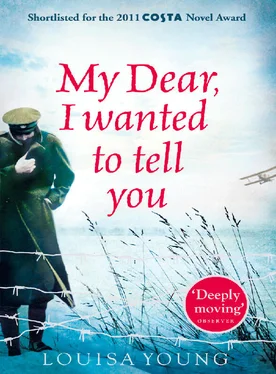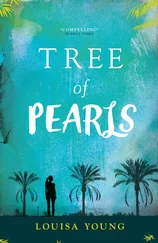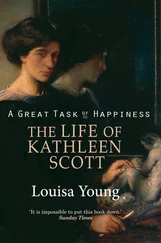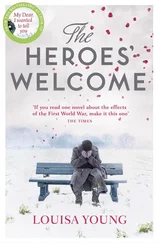Now, in the doorway, she looked at beautiful Julia in the morning light and pitied her. Though beauty was not Julia’s only quality; it could only be the first thing about her. When she entered a room, nobody thought: There is a generous, determined, kind-looking woman. Her kindness, her determination and her flashes of wit were, in everyday life, dazzled out of view by her rich pale hair, her tiny waist, her glowing skin, the surprise of her dark blue eyes, and the slight dip at the bridge of her straight nose, ‘the imperfection which makes you perfect’, as Peter called it. Few people cared about her better virtues. And as she was an adoring wife, not the type to exploit the male response, what was she supposed to do with it? It was only for Peter, and Peter wasn’t there. In a world increasingly made up of women and old, or sick, or juvenile men, unmanned men, it was of no benefit to her. Indeed, it must be a disadvantage. There are always women ready to hate another woman for her beauty, Rose knew that. She had been included – unwillingly – in enough nasty little conversations behind the backs of pretty women by other plain women who assumed, wrongly, that Rose would share their jealousy as she shared their dull looks.
So Rose pitied Julia for her beauty, or thought she did. But Julia had learnt to love her own beauty, because beauty was her currency, and other people valued it so highly. Each day since Peter had left, after breakfast, she sat on the needlepoint stool by the french windows, morning sun streaming in, and tuned his cello. She made a lovely picture. She had thought about it, and she had laughed at herself for having thought about it. She had considered how most charmingly to cast the cello aside (without causing it damage) in order to run into her husband’s arms when he appeared in the doorway. She had laughed at herself about that too.
She missed him so much. What was the point of doing anything without your husband to do it for? She had tried more public-spirited ways of helping out. She’d launched straight in at Elliman’s when they went over to munitions, gamely pulling on a hideous pair of overalls (‘I honestly, genuinely look like that elephant your uncle Kit sent the pictures of from India,’ she said to Rose) and packing explosives into long, tubular shell cases. She couldn’t stick it. ‘The girls are terribly coarse and vulgar, and they don’t like me, and anyway Peter wouldn’t want me all chemical and yellow.’ She couldn’t be a VAD because ‘Well, my hands . . .’ she said, but she was doing herself a disservice there. It wasn’t vanity. It was a horror of blood, an abrupt, puking horror, which helped nobody, and which she was ashamed to admit to. It was easier to confess to vanity. People expected it of her, anyway. She knew that.
A stint at the Department of Pensions in London ended with a kind reprimand from an elderly civil servant driven to distraction by some truly shambolic filing. Only after these false starts had Julia discovered that her real war work was exactly the same as her peace work: Peter.
It started with making nice things for Peter: sandbags, for example. Beautiful sandbags, of quality canvas, or even linen, and she embroidered his regimental crest in the corner: a wild boar’s head with a crown on, the motto ‘ Sic Petit Arcadia ’ – ‘thus he reaches heaven’. She saw no irony in it at that early stage. Mostly they were used as pillow cases, and for one general, as a shoebag for his dress shoes.
After that hand-knitted socks, scarves, vests, long-johns; cakes, letters, parcels of cigarettes and chocolate with loving messages on the back of amusing picture postcards, selections of the new gramophone records . . . that lovely recording of E lucevan le stelle , by Leo Szilard, that he loved . . . But she grew bored with doing that because she couldn’t see the results, though his thank-you letters were charming. More importantly, she felt, or perhaps more controllably, things should be nice for Peter when he came home .
Rose did not notice Julia’s inability to be satisfied. ‘You don’t really need to . . . I’m sure he’ll write and let us know when he’s coming,’ Rose would say, from time to time, but really she had more important things on her mind – so what if, after the sandbags, Julia had no faith in the wartime post? (So many letters and telegrams flying this way and that! Who knew where they might not end up? He was perfectly likely to turn up unannounced.) And, anyway, Julia had no faith in anyone else’s understanding of what Peter needed, and Julia had nothing else to do.
And when he had come back after training, his farewell few days before leaving for France, Julia’s joy had been so extreme that there was no room for anything else in the house: for anyone else’s emotions, or for silence, conversation, mutual enquiry, rest, forgiving each other the fights there had been about him joining up in the first place . . . and then he had gone again, and she had returned to plumping the cushions. It took her fifty-three minutes to plump every cushion in the house, if she didn’t hurry.
What Rose didn’t know was that Julia spent every night with the same phrases and memories and resentments and ancient conversations lining up at the end of the bed, waiting to take their turn in tormenting her, and woke every morning in howling loneliness for her husband, her sheets too smooth and her bed too tidy, with a hunger for things to be right just as strong, desperate and justified as that of any scared soldier, any exhausted ambulance driver, any battle-weary medic.
Rose thought Julia appallingly self-conscious, the kind who never got anything done. If she applied half the energy she applies to herself and the house to something useful, think what she’d achieve! She’s just going to disappear in a cloud of lavender water one of these days . . . But Rose wasn’t being entirely fair. Considering that Julia had been bred and trained to be a beautiful wife, and nothing else, she wasn’t doing too badly.
‘No, thank you, darling,’ Julia said. ‘I don’t need anything.’
*
Purefoy didn’t get up to town. He lay on his bed in his room above the pub, trying not to think about Nadine. Then, when he returned to France, he felt a new fear: that of not be able to do what was required of him. He was willing enough to go back to the front – keen, even, for duty to blast thought from his mind. He just wasn’t sure that he could walk, button his jacket, say good morning. The week in Dover, the officer training, and the look in Burgess’s eye before he left had all uprooted him.
A good officer. A good Second Lieutenant. A good soldier. The machine of which he was part deftly slotted him back. Even at the dock, he felt the required state of mind begin to descend upon him, inexorably, as on every man there. It seemed to him a mass state of mind, like gas, or the all-pervading stale-biscuit smell of damp khaki. It’s there; there’s nothing you can do about it. It’s somehow natural. Now that he had identified it, he found that he could look at it from arm’s length before letting the familiar sick comfort of it sweep over him again. He wanted to approach all of it with clean senses: the trains, the pristine uniforms going out, the dirty ones coming in, the landscapes streaming past the carriage windows, the rattle of window frames, the smooth slopes and low curves of the heavy countryside towards the Somme valley, the contained anxiety of the station at Amiens, the smells of soot and paraffin, the ever-increasing destruction, the lackening trees, the cling of the muddy road to the sole of the boot, the camp, the dark damp culvert that was the entrance to the trench system.
They hadn’t found somewhere else to send him so he was, after all, back with the Paddingtons in the support lines behind Hébuterne. He found Locke in the wallpapered rabbit hole, and sat on a box, and accepted a glass of whisky. Dinner was about to be served. Locke was stepping out to see how the fellows were doing. Purefoy, accompanying him in his faultless new khaki, polished and presented, whistle and revolver, felt an utter fraud.
Читать дальше

![Ally Carter - [Gallagher Girls 01] I'd Tell You I Love You But Then I'd Have to Kill You](/books/262179/ally-carter-gallagher-girls-01-i-d-tell-you-i-lo-thumb.webp)










